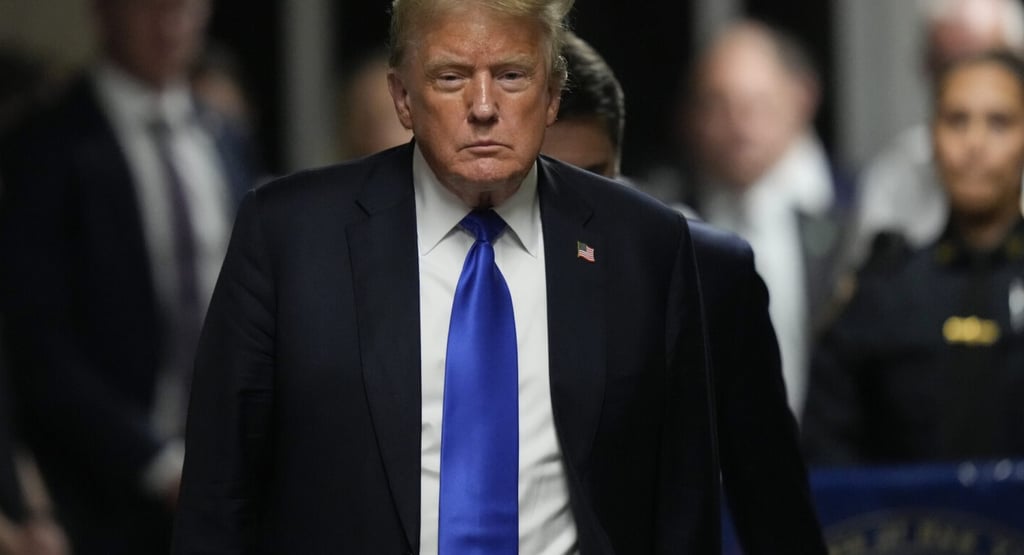Trump warns India of reciprocal tariffs over high taxes on US goods
Citing India’s 100% tariffs on certain American products, Trump said, “If they tax us, we tax them the same amount.”
WORLD


Former US President and President-elect Donald Trump has issued a stern warning to India over what he described as excessive tariffs on American goods. Speaking from his Mar-a-Lago estate on Monday, Trump declared that his administration would respond with "reciprocal tariffs" if India continues to impose high taxes on US imports.
Citing India’s 100% tariffs on certain American products, Trump said, “If they tax us, we tax them the same amount.” He emphasized that fairness in trade would be a cornerstone of his economic agenda, and any unilateral taxes on American goods would no longer go unanswered.
Trump specifically criticized India and Brazil, accusing both countries of imposing disproportionately high tariffs on US imports. "India charges a lot. Brazil charges a lot. If they want to charge us, that’s fine, but we’re going to charge them the same thing," he remarked, adding that the principle of reciprocity would guide his administration’s trade policies.
This warning to India comes as part of a broader critique of US trade relationships with key partners, including China, Mexico, and Canada. Trump reiterated his longstanding belief that the US has been treated unfairly in trade agreements and vowed to rectify these imbalances through aggressive measures.
Broader Implications for US-India Trade
India and the US have a complex trade relationship, marked by frequent disagreements over tariffs and market access. Trump’s comments signal a shift towards a more confrontational approach as he prepares to assume office. Observers believe this stance could strain economic ties between the two nations, particularly in industries such as agriculture, automobiles, and technology.
While India has often defended its tariff policies as necessary to protect domestic industries, US officials have consistently argued that these practices hinder American businesses. Trade experts warn that escalating tariff disputes could hurt both economies, potentially reducing trade volumes and affecting key sectors.
Trump’s tough rhetoric extended beyond India, as he also addressed trade and border issues with Mexico and Canada. He reaffirmed plans to impose a 25% tariff on all imports from these countries unless they take significant action to curb the flow of illegal drugs and migrants into the United States.
Canada, in response, has announced a CAD 1.3 billion investment in border security to address these concerns. The measures include granting additional powers to border officials and enhancing surveillance of goods headed to the US. However, Canadian authorities acknowledged that preventing southbound crossings remains a challenge.
The trade tensions with Canada and Mexico threaten to disrupt the United States-Mexico-Canada Agreement (USMCA), which has been a cornerstone of North American trade. Any significant changes to the agreement could have far-reaching consequences for businesses and consumers across the region.
As Trump prepares to return to the White House, his hardline approach to trade appears set to dominate his economic agenda. By adopting a "tit-for-tat" strategy, he aims to address what he perceives as decades of unfair treatment of the US in global trade.
